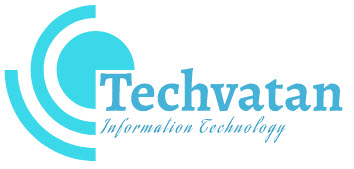The industry relies heavily on manual processes that drive costs across target sectors such as trading, refining, marketing, and exploration. How can blockchain be used in the oil and gas industry?
The platform promises to offer a better understanding of oil trading and how it can co-relate with blockchain technology. As a sector historically relied primarily on paper records, this reliance compounds over time with a lack of visibility into trade assets, supply chain records, and data storage issues.
The critical innovations behind blockchain come from its ability to provide a decentralized ledger for recording transactions happening in real time throughout different peer-to-peer networks connected by open channels. It uses cryptography to ensure that the data is unalterable, offers transparent communication in real time, and provides accountability across parties. Blockchain can provide many benefits in an oil and gas industry that faces many challenges. Let’s find out.
Table of Contents
Data Transparency
Improved data transparency leveraged across supply chain processes and made supply chain events more readily accessible through chain-of-custody documentation at all stages from discovery to processing.
Improved Data Transparency: Blockchain-based intelligent contracts provide a new level of visibility into trade transactions. It can have use cases to track and record the movement of commodities, showing the journey of the raw material from the point of extraction to refining through key events and locations.
Efficient Management
More efficient management of inventories by providing greater visibility into inventory levels, as well as analytics insights about the current and future demand trends for products/services.
Enhance overall operational efficiencies between key supply chain partners such as suppliers, logistics providers, and buyers. Reduced Costs Inventory is reduced through greater accuracy and visibility of demand and improved data visibility into your entire supply chain.
Information integrity
Data stored on the blockchain cannot be altered or falsified, which is essential for ensuring that supply chain events remain accurate and timely. It prevents opportunities for costly mistakes or fraud.
Blockchain enables companies to provide better transparency into their processes and transactions, which helps enhance the trust between all participants in the supply chain. In addition, blockchain provides an audit trail of record transactions, which can be referenced by various stakeholders such as consumers, government agencies, and certifiers to build better relationships and achieve mutual goals.
Real-time update
Improved coordination through real-time status updates that can be traced back to the data source, creating a detailed record of product identity and provenance throughout its lifecycle. It can help increase security, improve quality, and ultimately boost operational efficiency.
Improved Security
More transparent and secure operations using blockchain-based smart contracts that can have a use case to automate contracts and payments based on events across the supply chain. Blockchain technology provides a decentralized ledger for recording transactions happening in real time throughout different peer-to-peer networks connected by open channels.
Innovation
The oil and gas industry is a highly regulated business with many stakeholders involved in various processes from exploration to production, sale, and consumption. Blockchain technology allows for more transparent documentation about the entire process from start to finish, ultimately establishing a trail of recorded data that all parties can share along the supply chain.
Adoption:
The use of blockchain in the oil and gas industry can help reduce costs by lessening the need for manual tasks and providing greater visibility into the Status of shipments or deliveries. It can also help automate specific business processes to increase efficiency and reduce time spent maintaining records and filling out paperwork.
For example, the supply chain process for oil, gas, and petrochemicals is traditionally very stringent: from exploration to extraction to refining.
In addition, the complex nature of the industry requires many different parties to be involved in the delivery of goods across borders. Blockchain can offer improved transparency by providing a range of benefits such as allowing all users to view inventory levels at any point in time, track shipments in real-time throughout their entire life cycle, or better communicate with suppliers or other stakeholders.
Current Status of blockchain in the oil trading
Much attention has been paid to blockchain technology in the investment banking industry, but it isn’t as widely adopted as one may expect. While a small handful of oil trading companies are utilizing it, most respondents were unsure whether or how they would deploy the technology.
A lack of innovativeness may be because many organizations are still finding their footing in this sector, using innovative software and hardware technologies to create new services that would otherwise not be possible.


No Responses